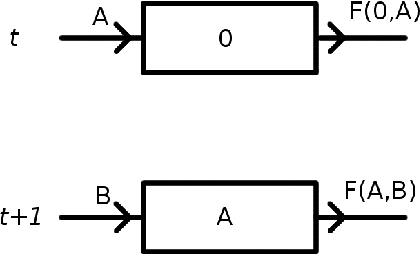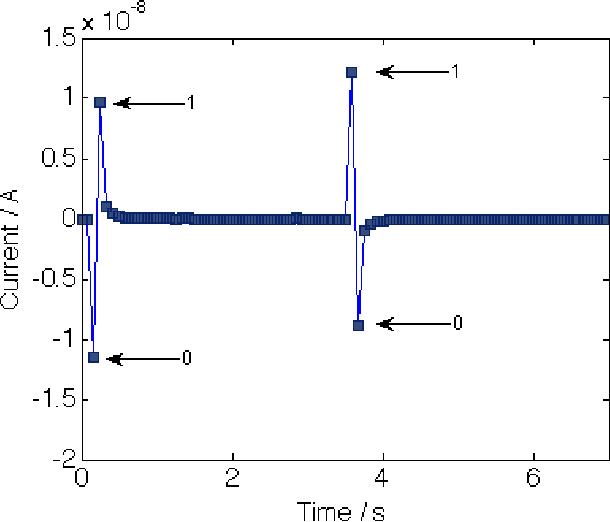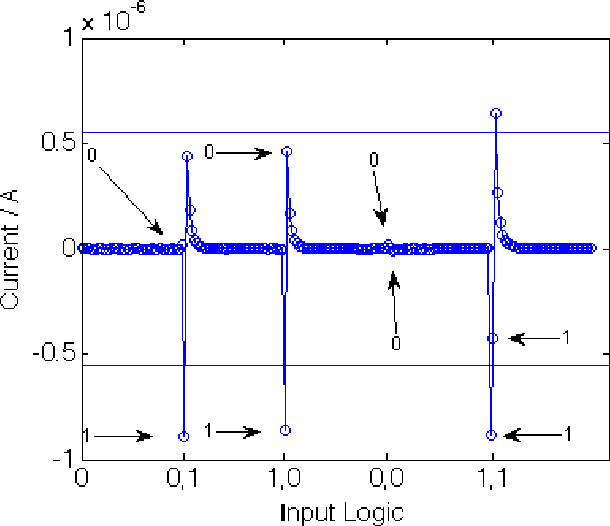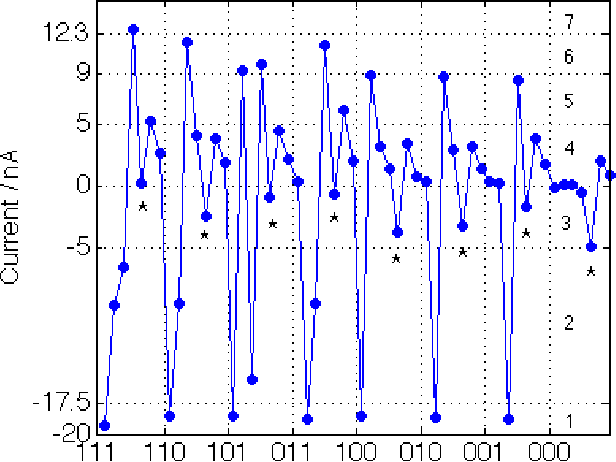Is Spiking Logic the Route to Memristor-Based Computers?
Paper and Code
Feb 17, 2014



Memristors have been suggested as a novel route to neuromorphic computing based on the similarity between neurons (synapses and ion pumps) and memristors. The D.C. action of the memristor is a current spike, which we think will be fruitful for building memristor computers. In this paper, we introduce 4 different logical assignations to implement sequential logic in the memristor and introduce the physical rules, summation, `bounce-back', directionality and `diminishing returns', elucidated from our investigations. We then demonstrate how memristor sequential logic works by instantiating a NOT gate, an AND gate and a Full Adder with a single memristor. The Full Adder makes use of the memristor's memory to add three binary values together and outputs the value, the carry digit and even the order they were input in.
 Add to Chrome
Add to Chrome Add to Firefox
Add to Firefox Add to Edge
Add to Edge